Physicians can easily calculate risk
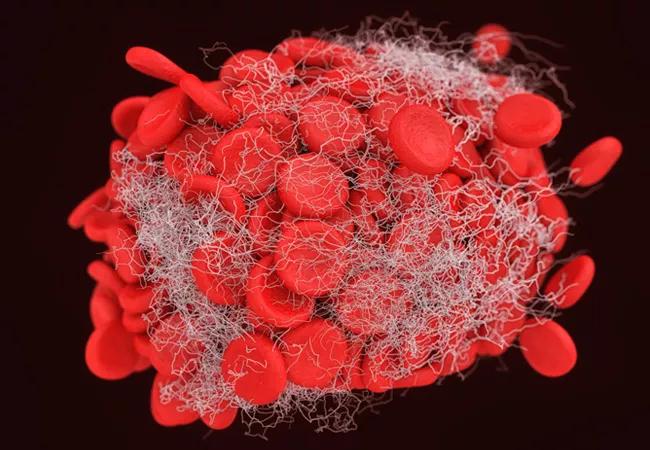
A nomogram constructed by Cleveland Clinic colorectal surgeons will make it possible for clinicians to better evaluate the risk of postsurgical venous thromboembolism (VTE) in patients with inflammatory bowel disease (IBD). The nomogram, as well as the research that informed its design, was presented Monday at the American Society of Colon and Rectal Surgeons (ASCRS) Annual Meeting in Nashville.
Advertisement
Cleveland Clinic is a non-profit academic medical center. Advertising on our site helps support our mission. We do not endorse non-Cleveland Clinic products or services. Policy
“IBD puts patients at a higher risk of VTE following abdominopelvic surgery ― in some cases, as high a risk as colorectal cancer,” according to Scott R. Steele, MD, Colorectal Chairman and senior author of the study, which examined the incidence of in-hospital and post-discharge VTE (including DVT or PE) within 30 days of abdominopelvic surgery.
“An accurate prediction of VTE before and after discharge using the nomogram can facilitate better decision-making for individualized extended thromboprophylaxis,” says Dr. Steele.
With the nomogram, physicians can easily calculate the risk of VTE for their patients through a scoring system that considers a range of factors, including patient age, steroid use, bleeding disorders, type of surgery, ASA 3-4, postoperative transfusion, pelvic and enterocutaneous fistula surgery, history of hypertension, length of operation and preoperative hospitalization.
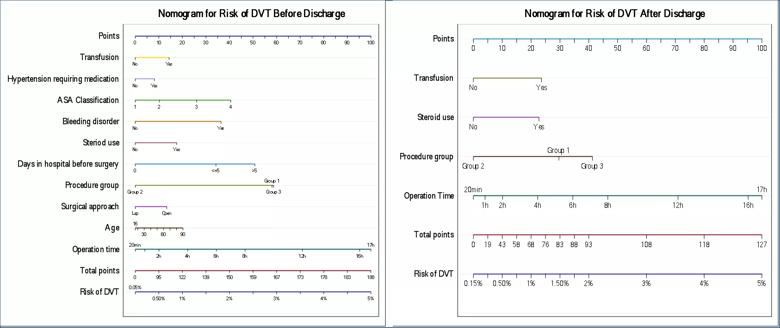
“VTE occurs in less than 5 percent of patients,” Dr. Steele acknowledges, “but these cases can result in significant complications, including motality,” he says. “The goal is to push VTE rates to zero, or as close to zero as we can get.”
The study looked at 24,182 patients who met the inclusion criteria. Thirty-day total and post-discharge rates of VTE were 2.5 percent (N = 614) and 1 percent (N = 252), respectively, and 41 percent (252/614) of VTE events occurred after hospital discharge.
“As clinicians, we have to do everything we can to mitigate the risk of VTE,” says Dr. Steele. “We think this nomogram will be a valuable tool for all those who care for patients with IBD, even those interacting with the patient well after surgery.”
Advertisement
Dr. Steele indicated he and his research team intend to continue their study of high-risk VTE patients. The team, in addition to Dr. Steele, includes research fellow Cigdem Benlice, MD (lead author); Stefan D. Holubar, MD, MS; Emre Gorgun, MD; Jeremy Lipman, MD; Matthew Kalady, MD; and Bradley Champagne, MD.
Advertisement
Advertisement

Strong patient communication can help clinicians choose the best treatment option
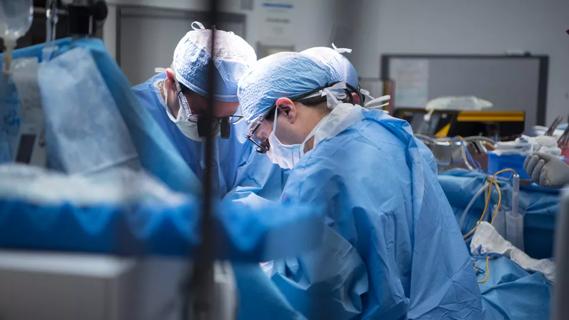
ctDNA should be incorporated into care to help stratify risk pre-operatively and for post-operative surveillance

The importance of raising awareness and taking steps to mitigate these occurrences
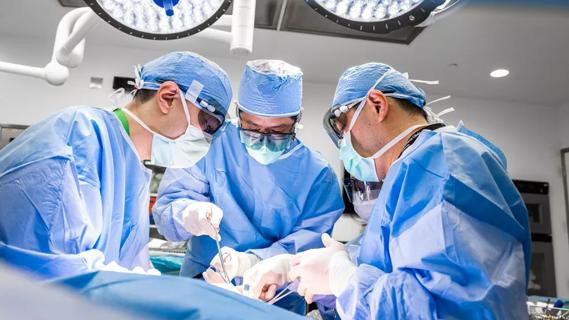
New research indicates feasibility and helps identify which patients could benefit

Treating a patient after a complicated hernia repair led to surgical complications and chronic pain
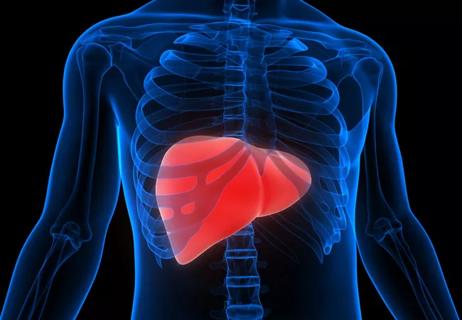
Standardized and collaborative care improves liver transplantations
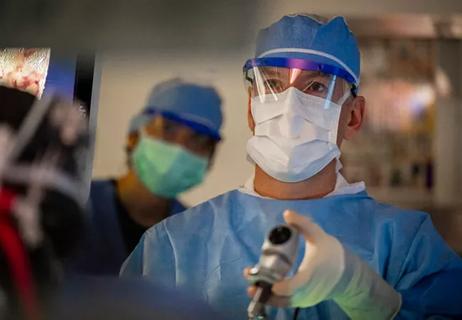
Fewer incisions and more control for surgeons

Caregiver collaboration and patient education remain critical